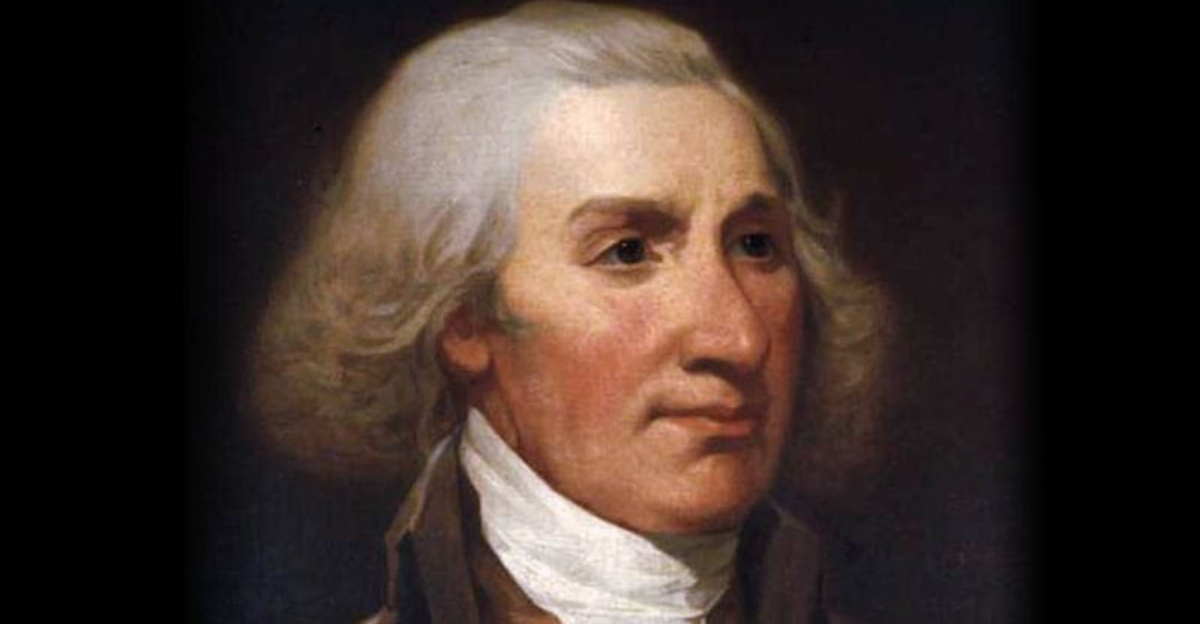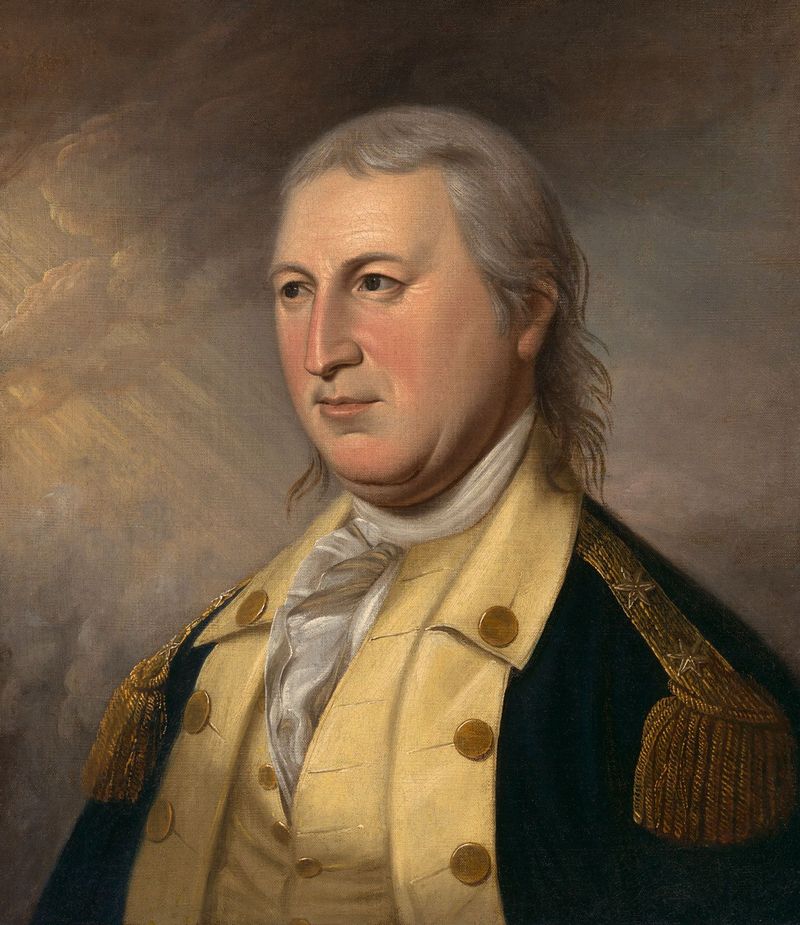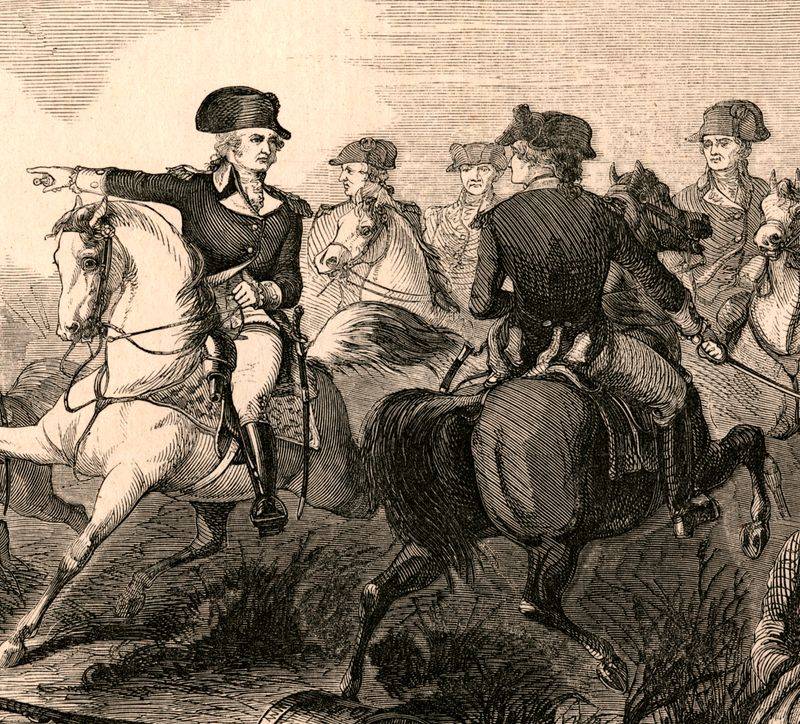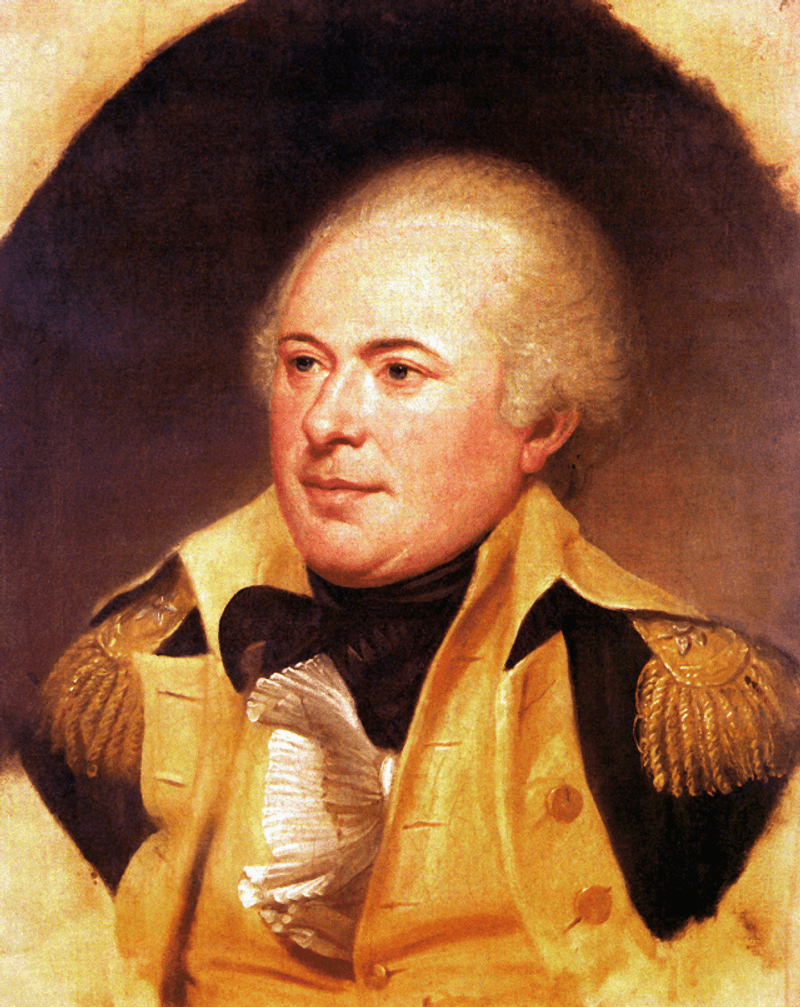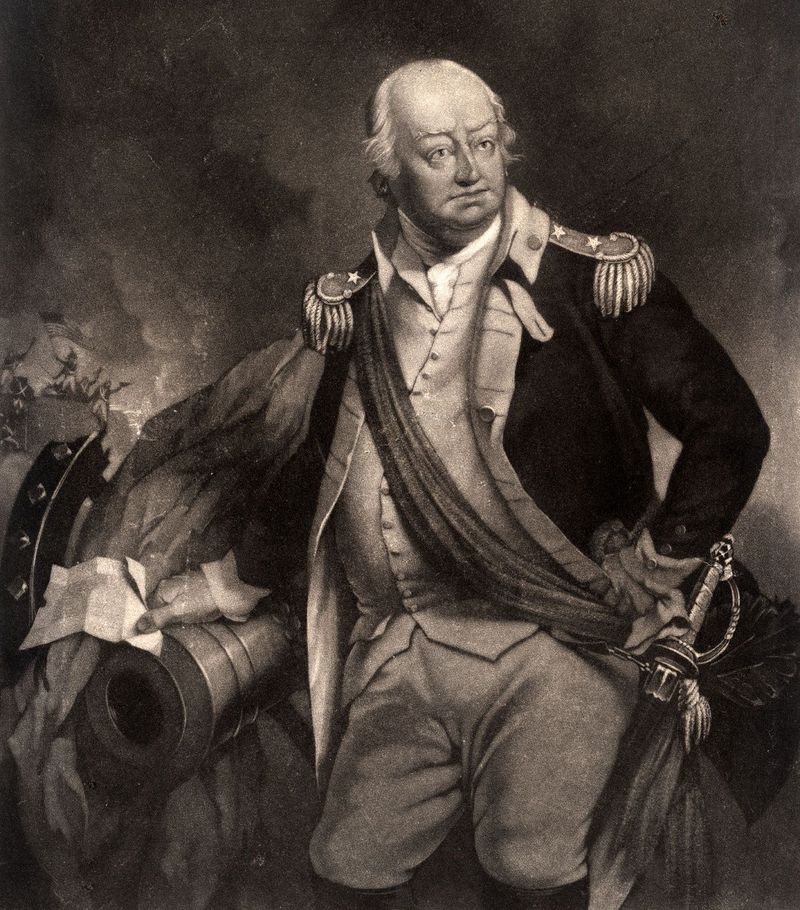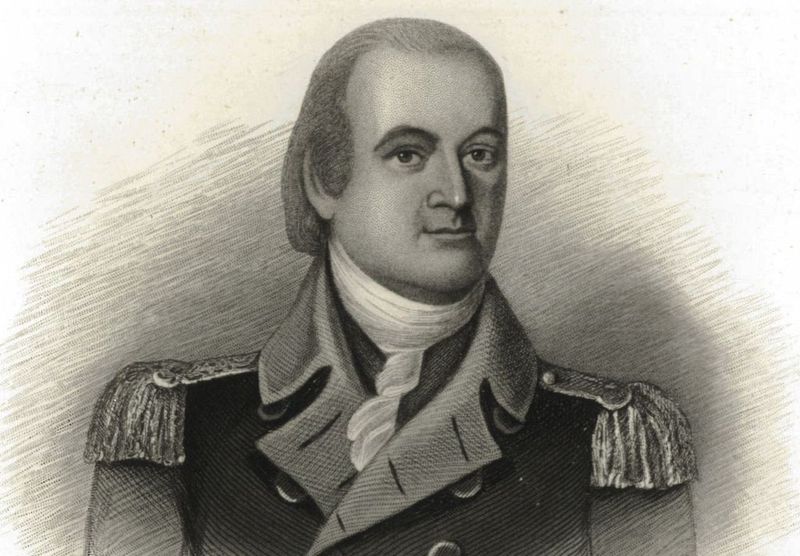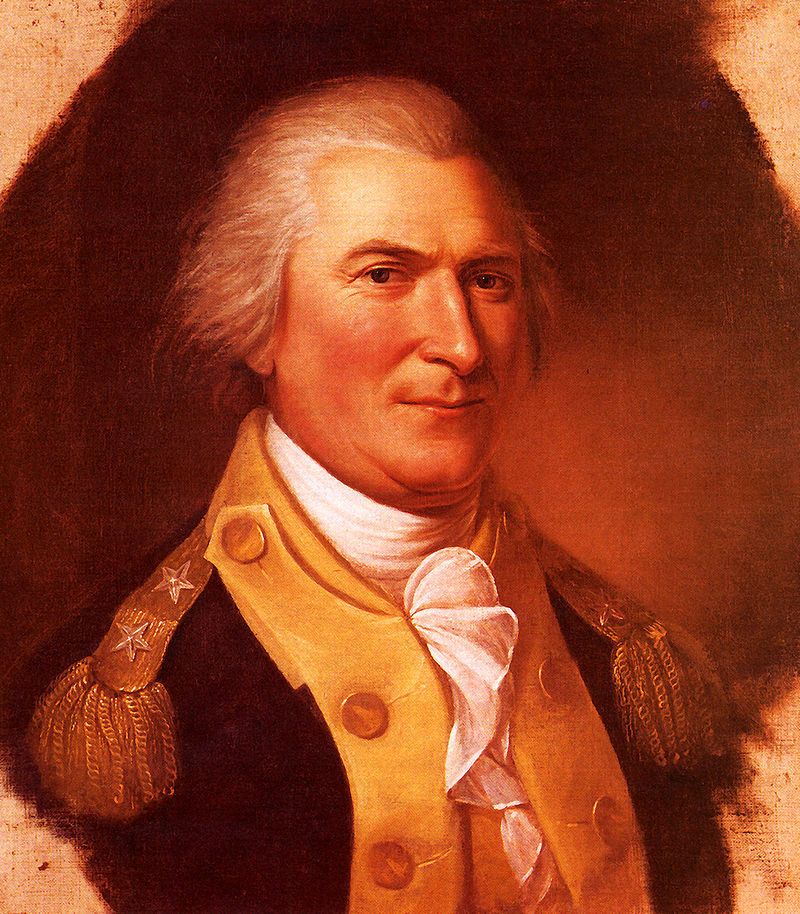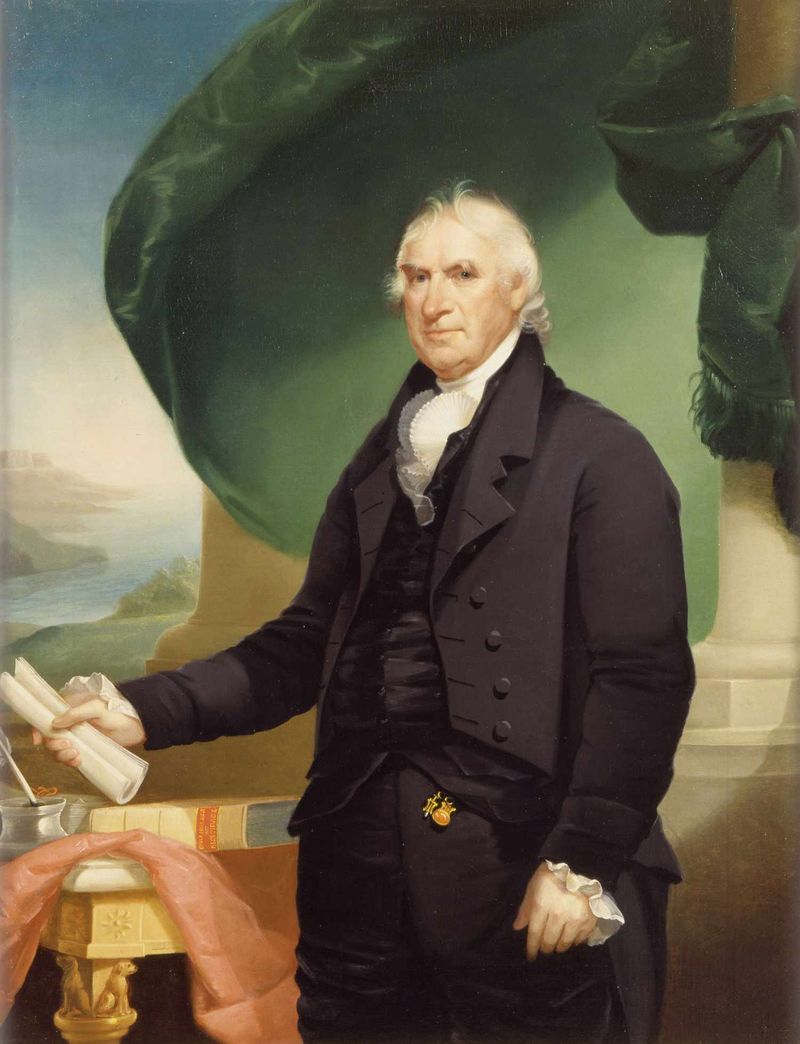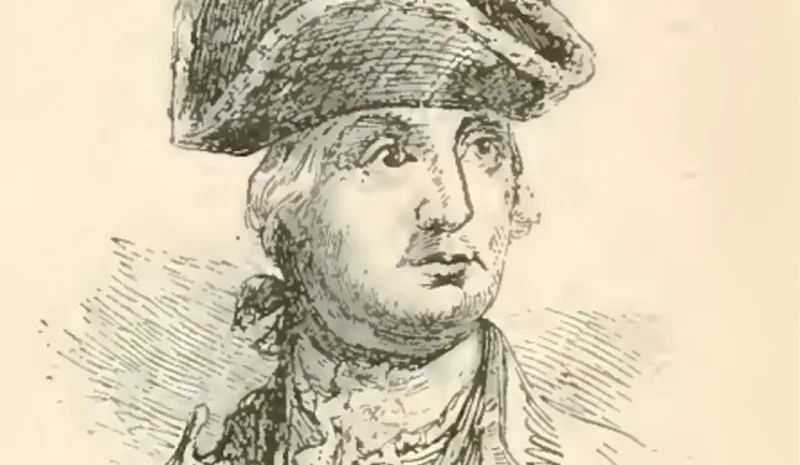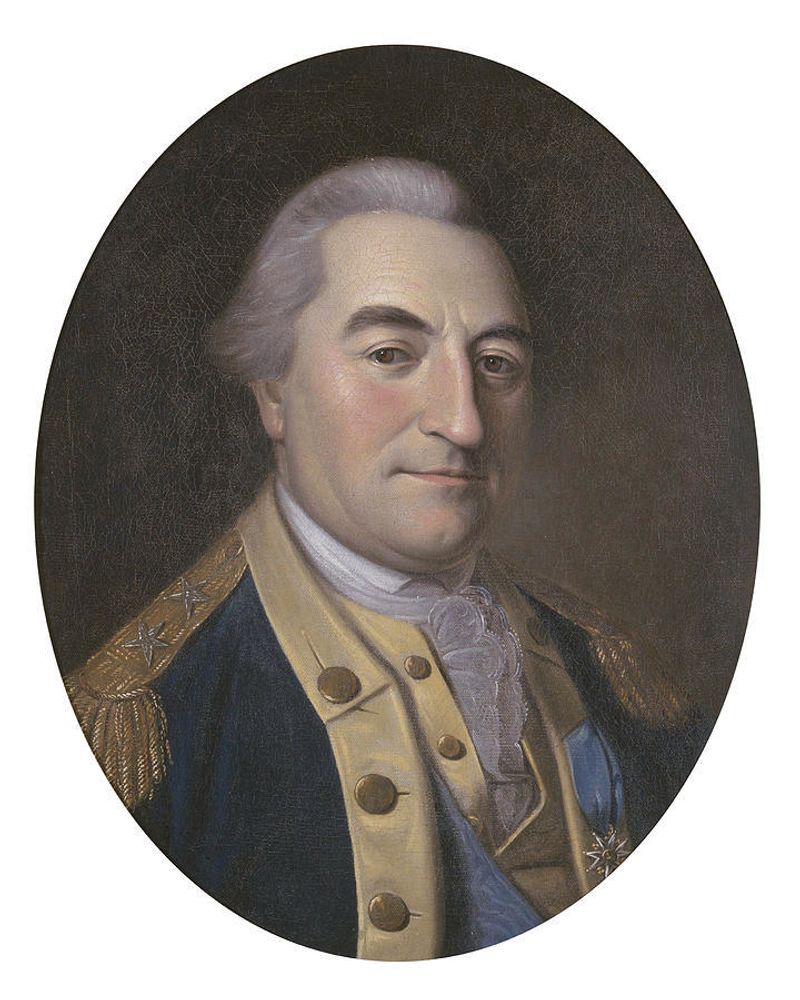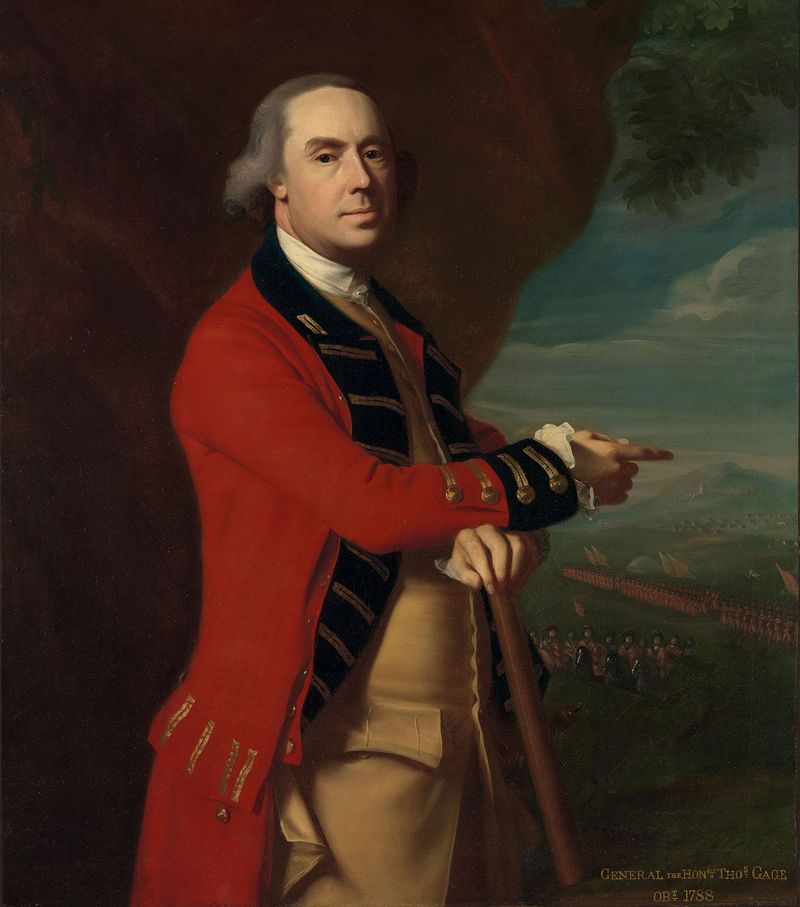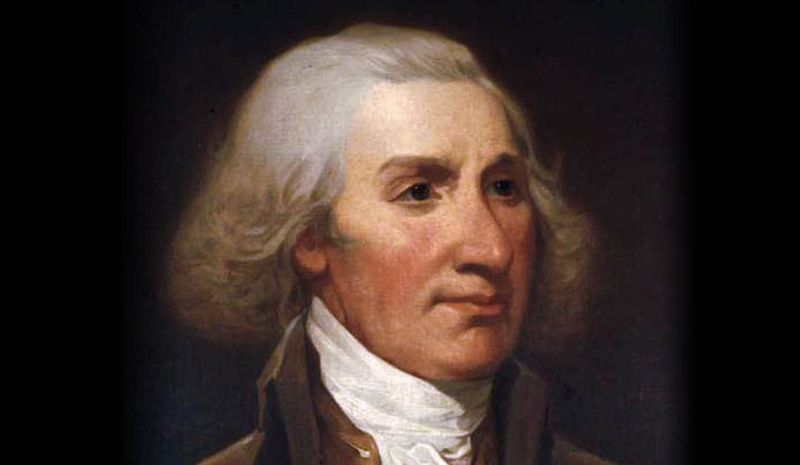While the American Revolution produced legendary leaders like George Washington, not every general who wore the Continental uniform covered themselves in glory. Behind the inspiring tales of patriotic victory lurk stories of military incompetence so severe they nearly derailed the fight for independence. These commanders fled battlefields, surrendered critical forts, betrayed their own cause, and led their men into needless slaughter. Their failures weren’t just embarrassing—they cost American lives and repeatedly threatened the entire revolutionary cause.
1. Horatio Gates – The Overrated Defeatist
Gates claimed credit for the pivotal Saratoga victory while actually contributing very little. Benedict Arnold and Daniel Morgan did the real fighting while Gates stayed safely behind the lines. His true colors showed at Camden in 1780, when he abandoned his troops and galloped away so rapidly he didn’t stop until he reached Hillsborough—60 miles from the battlefield!
A former British officer, Gates constantly schemed against Washington, believing himself superior. His Camden disaster exposed his true abilities when he positioned inexperienced militia against seasoned British regulars. The resulting massacre killed or captured over 2,000 Americans, yet Gates blamed everyone but himself.
2. Charles Lee – The Traitorous Hothead
Lee’s massive ego and British military background convinced him he deserved Washington’s position. At Monmouth in 1778, he directly disobeyed orders, retreating when commanded to attack. When Washington confronted him on the battlefield, Lee responded with such insolence that he was later court-martialed.
What nobody knew until decades later: while a British prisoner in 1777, Lee secretly wrote a battle plan for General Howe on how to defeat the Americans! The document, discovered in the 1850s, revealed his true loyalties. His erratic behavior and constant criticism undermined American morale at critical moments.
3. James Wilkinson – The Backstabbing Opportunist
Wilkinson holds the dubious honor of being America’s most successful traitor. While wearing an American uniform, he secretly took a Spanish oath of allegiance and received Spanish pension payments for years! His 1776 invasion of Canada collapsed into a disorganized retreat that cost hundreds of American lives.
A master manipulator, Wilkinson repeatedly betrayed superiors and colleagues. He exposed the Conway Cabal plot against Washington only after realizing it would fail. Later investigations revealed he’d been selling military secrets to multiple foreign powers.
Despite his treachery, Wilkinson somehow avoided punishment and even became commanding general of the U.S. Army after the war!
4. Benjamin Lincoln – The Surrender Specialist
Lincoln’s military career featured an impressive collection of defeats and surrenders. His most spectacular failure came at Charleston in 1780, where he surrendered the entire Southern American army—over 5,000 men—to the British. This remains the largest American surrender until World War II.
Earlier, Lincoln had bungled operations in New York and failed to coordinate with other commanders. Washington, desperate for experienced officers, kept giving Lincoln commands despite his track record.
In a twist of historical irony, Lincoln was chosen to accept the British surrender at Yorktown. The British commander, remembering Lincoln’s Charleston surrender, refused to hand his sword directly to Lincoln!
5. William Alexander (“Lord Stirling”) – The Drunken Blunderer
Alexander claimed a Scottish earldom (hence “Lord Stirling”), but his battlefield performance earned him less noble nicknames. His drinking problems were legendary—officers reported him being visibly intoxicated during critical operations. At Long Island in 1776, his reckless tactics trapped his entire division, resulting in massive casualties and his own capture.
Despite his failings, Washington kept him around because of his unwavering loyalty. Alexander compensated for his tactical incompetence with personal bravery, often charging into battle half-drunk.
His most consistent contribution to the war effort? Hosting lavish parties that depleted his fortune but did little to advance American strategy.
6. John Sullivan – The Reckless Raider
Sullivan’s notorious 1779 campaign against the Iroquois earned him the nickname “Scorched Earth Sullivan.” He destroyed over 40 Native American villages but accomplished little strategically while losing men to ambushes and starvation. His earlier military record wasn’t much better.
At Brandywine Creek in 1777, Sullivan failed to properly scout British movements, allowing Howe’s forces to execute a devastating flanking maneuver. When commanding on Rhode Island, his poor coordination with French allies led to another defeat.
Sullivan’s typical approach—aggressive action without adequate preparation—repeatedly led to needless American casualties. He eventually resigned, claiming poor health, though his political prospects had dimmed due to his military failures.
7. Arthur St. Clair – The Fort Abandoner
St. Clair’s name became synonymous with military disaster after he abandoned Fort Ticonderoga in 1777 without firing a shot. This strategic fortress, which Americans had previously captured at great cost, contained valuable supplies and artillery. St. Clair claimed the position was indefensible, but his hasty retreat left critical cannons and food stores for the British.
His retreat turned into a chaotic scramble. The Continental Army lost hundreds of men and vital equipment, while Burgoyne’s British forces gained momentum for their advance.
Though court-martialed, St. Clair was acquitted on technicalities. Somehow, he later became president of the Continental Congress, proving that failing upward isn’t a modern invention!
8. George Clinton – The Neglectful Governor-General
Clinton’s divided attention between his role as New York’s governor and his military responsibilities proved disastrous for the American cause. While he excelled at politics, his military leadership was abysmal. The Hudson River Valley—crucial for American communications and supply—repeatedly fell to British control under his watch.
His militia forces gained a reputation for poor discipline and battlefield confusion. At Fort Montgomery in 1777, Clinton escaped capture only by jumping off a cliff into a boat while his forces were overwhelmed.
Clinton’s priority was always protecting his political position rather than achieving military objectives. He frequently diverted resources to politically valuable areas while leaving strategically important positions undermanned.
9. Robert Howe – The Failed Southern Defender
Howe’s military career in the South consisted of one humiliating defeat after another. His most spectacular failure came at Savannah in 1778, where his poor defensive positioning and lack of preparation allowed the British to capture Georgia’s capital with minimal effort. British forces outflanked his position so easily that many questioned whether he had bothered to scout at all.
Local Southern leaders despised Howe, accusing him of arrogance and neglect. His constant feuding with civilian authorities undermined cooperation when unity was desperately needed.
After losing Savannah, Howe was replaced by Benjamin Lincoln—essentially replacing one incompetent commander with another. The pattern of Southern defeats continued under both men’s leadership.
10. Johann de Kalb – The Brave but Outmatched
Baron de Kalb’s personal courage couldn’t compensate for his tactical shortcomings. A European mercenary seeking glory in America, de Kalb found himself thrust into command positions beyond his capabilities. After Gates fled the Camden battlefield, de Kalb stayed—a decision that cost him his life and many of his men’s.
His European training proved ill-suited for American conditions. He repeatedly positioned troops in conventional European formations that became easy targets for British bayonet charges.
Though he died heroically (suffering eleven wounds at Camden), his leadership had already doomed his men. Congress posthumously honored him, conveniently forgetting that his tactical decisions had contributed to one of the Revolution’s worst defeats.
11. Thomas Conway – The Scheming Backstabber
Conway embodied the worst combination of military incompetence and political scheming. This Irish-born French officer orchestrated the infamous “Conway Cabal”—a plot to replace Washington with Gates. When Washington confronted him with his treacherous letters, Conway denied everything despite clear evidence.
On the battlefield, Conway’s performance never matched his boasting. His tactical knowledge proved superficial, and his units performed poorly under his command.
Karma eventually caught up with Conway when he was wounded in a duel with an American officer defending Washington’s honor. Near death, Conway wrote Washington a surprising apology: “You are in my eyes the great and good man.” Too little, too late—Conway was forced to flee back to France, his reputation destroyed.
12. Philip Schuyler – The Ineffective Administrator
Schuyler, a wealthy New York aristocrat, approached warfare as if managing one of his estates—with plenty of paperwork but little practical action. His elaborate defensive preparations for Fort Ticonderoga proved useless when Burgoyne’s forces arrived in 1777. Despite months of warning, he failed to properly fortify the position.
His greatest talent was shifting blame. When Ticonderoga fell, Schuyler ensured St. Clair took the fall while obscuring his own responsibility for inadequate supplies and reinforcements.
Congress eventually replaced him with Gates (an ironic downgrade in competence). Schuyler’s main contribution to American victory? His daughter married Alexander Hamilton, whose financial genius later saved the young nation that Schuyler had nearly lost on the battlefield.
